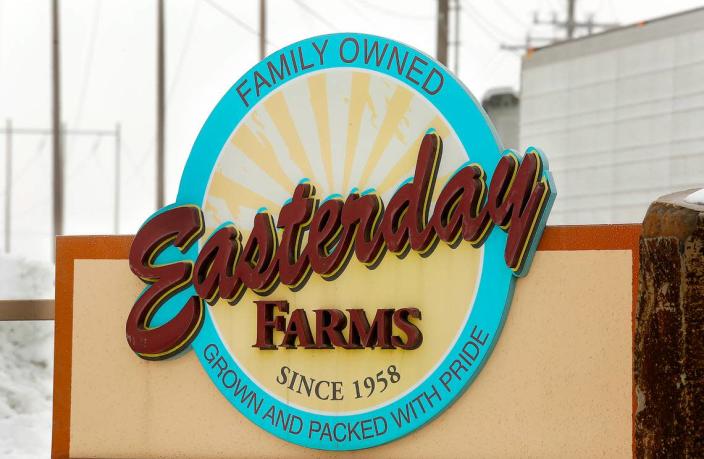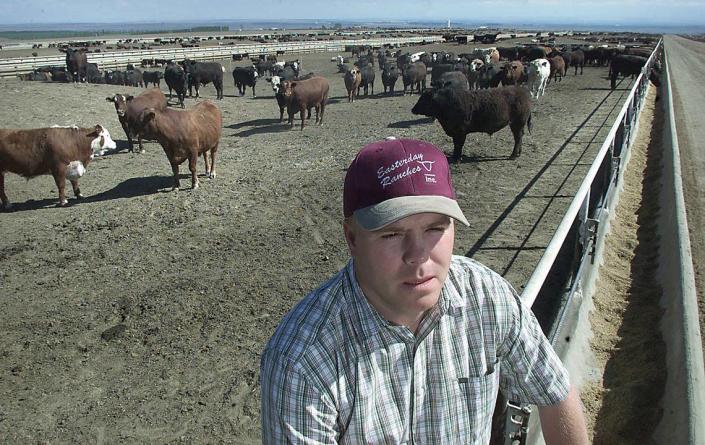After more than a year of negotiations, the Easterday bankruptcy settlement is nearing a conclusion for dozens of businesses owed money.
At a recent hearing, lawyers and Judge Whitman Holt of the Federal Bankruptcy Court in Yakima discussed the latest in a proposed claims schedule for 65 businesses with claims ranging from $300 to $4 million.
In all the claims add up to $10.76 million and represent the bulk of the debts for the Easterday Farms portion of the lawsuit.
The Easterday Ranches portion is still ongoing and includes more than $260 million in claims by Tyson Foods and Segale Properties.

So far Rabo Agrifinance is the lone holdout, in its attempt to get more than $1 million owed from property loans.
Attorneys for many of the other businesses reported that their clients voted and approved the tentative settlement amounts, most with more than 90% approval by voting parties.
Judge Holt said that while Rabo could “throw a grenade” on the settlement, it probably isn’t the best course of action. Instead language in a recent filing was added that will allow Rabo to preserve their claim while the other businesses settle up.
The Easterday companies had defaulted on loans made by Rabo for several of their properties in Franklin County.
The Basin City property has now been sold as part of the liquidation process, and Karen Easterday will retain ownership of the Pasco onion shed.

Judge Holt said that he was pleasantly surprised at the speed of the proceedings, noting that he has seen similarly sized cases take years to settle.
“A common trope is that a bankruptcy case is like a giant iceberg and the judge only sees what’s above water. Assuming that’s true, I’ve seen quite a bit on the tip of the iceberg, and I can only imagine what you’ve dealt with throughout the entire case underneath the water,” he said. “If this case gets closed by the end of the year, or early next year, it’ll be well ahead of many cases that were filed (recently).”
He also commended the businesses and their legal counsels for their willingness to work together toward a solution.
In addition to the Rabo claim, Tyson still has an allowable claim of $261 million and Segale has one for $7.8 million.
‘Ghost cattle’ scam
Tyson’s claim stems from a “ghost cattle” scheme perpetuated by Easterday president Cody Easterday, in which he charged the company for the care of more than 200,000 head of cattle that did not exist.
Cody Easterday has pleaded guilty to wire fraud charges and will be sentenced in September, or once the bankruptcy case is settled. His sentencing has been moved several times to allow him to cooperate in the lawsuit. He faces up to 20 years in prison.
Segale’s claim comes from a loan to buy thousands of head of cattle.
The settlement also means that other Easterday family members would not be prosecuted for not acting to stop Cody Easterday’s “ghost cattle” scam if they were aware of it.

Easterday’s mother, Karen Easterday, has been representing the family in legal proceedings after the death of her husband, Gale Easterday. He was killed in a head-on crash in December 2020 when he was driving the wrong way on Interstate 182 in Pasco.
The agreement also would see debtors agree to not file documents, submit statements or appear in court in connection with Cody Easterday’s sentencing, pending Department of Justice approval of the stipulation.
Tyson and Segale are not required to release their direct claims against Cody Easterday, but all other members of the family will be released from liability contingent on making good on their end of the agreement, which includes the sale of some personal property and payment toward the settlement to retain other property rather than selling it.
Sale of equipment, real estate and other assets have generated about $250 million toward the debt, according to court documents.
The largest portion of that comes from the sale of 18,000 acres of land to AgriNorthwest, which is part of the investment arm of the Church of Jesus Christ of Latter Day Saints.
Notable settlements
In all, there are 65 claimants that have approved the tentative settlement totaling nearly $10.76 million.
The settlements range from as low as $310 owed to Newhouse Manufacturing to $4 million owed to The McGregor Company.
Some of the more notable or local claims include:
-
John Deere Financial – $2.3 million
-
DLL Finance – $1.35 million
-
Central Machinery Sales – $740,000
-
Labor Plus Solutions – $455,000
-
Cornado Garza Trucking – $187,000
-
Lad Irrigation Company – $61,000
-
Bobcat of Pasco – $59,500
-
Basin City Autoparts – $24,000
-
Benton PUD – $23,000
-
Connell Oil Inc. – $2,700
Nonexistent livestock
Over a period of four years, Easterday was charging Tyson for the care of nonexistent livestock at their Franklin County operation.
According to his plea agreement, of the nearly 300,000 cattle it claimed in one inventory report, about 266,000 did not actually exist.
For example, one invoice submitted to Tyson showed Easterday had bought 1,568 new head of cattle, asking for a payment of about $1.5 million. Another claimed 6,312 head of nonexistent cattle, for which Easterday’s company received $5.3 million from Tyson.
Easterday also received about $11 million from the second company, now identified as Segale, for the purchase and care of thousands of head of nonexistent cattle.
Easterday Ranches was supposed to have repaid those funds with 4% interest.
Prosecutors said Easterday embarked upon this scheme in order to cover losses from a decade’s worth of speculative trading in the cattle futures markets using both his own money and the company’s.


